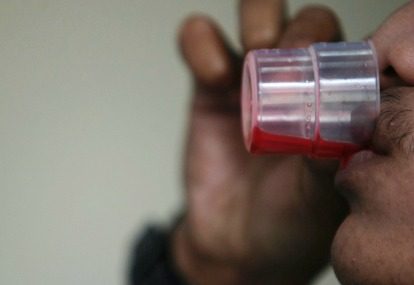Does Methadone Treatment Reverse the Damage Done by Heroin?
By now, most people know about the dangers of opiate abuse. As one of the most powerful opiates on the market, heroin addiction has become an epidemic all its own.
People struggling with heroin addiction face a range of challenges to both the mind and body. While traditional drug rehab programs do a good job at helping recovering addicts work through the mental effects of addiction, they’re ill-equipped to address the physical damage left behind by heroin abuse.
Methadone treatment takes a two-pronged approach to treating heroin addiction, addressing both the physical and psychological damage that this drug causes. While methadone treatment may not necessarily reverse the damage done by heroin, it nonetheless provides the level of support most needed to help recovering addicts lead healthy, productive lives.
Heroin’s Damaging Physical Effects

Methadone can help restore the brain’s chemical balance.
Like many other types of opiate-based drugs, heroin alters the rate at which brain cells secrete certain neurotransmitter chemicals. According to the Journal of Addiction Science & Clinical Practice, heroin forces these cells to produce excess amounts of dopamine, norepinephrine and serotonin.
These interactions account for the “high” experience, but also cause gradual damage to cell structures in the process. Over time, brain chemical imbalances develop as cells can no longer secrete these chemicals without heroin’s effects. These changes account for the withdrawal episodes addicts experience.
After long-term heroin abuse, the brain’s overall structure changes, which inevitably changes the way the brain works. More than anything else, the degree of damage done by heroin to brain cell structures determines whether methadone clinic treatment can help reverse its effects.
Call our helpline at 800-994-1867Who Answers? to see if your insurance will help pay your rehab costs.
Heroin’s Damaging Psychological Effects
The psychological damage wrought by heroin lies at the heart of addiction-based behavior. The chemical imbalances brought on by heroin interfere with a critical region known as the brain’s reward center.
The reward center shapes a person’s thinking processes, motivations, priorities and daily behaviors. By the time heroin addiction takes shape, the drug has become the sole focus of a person’s life, so getting and using the drug takes priority over all else.
Methadone Treatment Effects
In cases of severe or long-term heroin addiction, addressing the physical damage of the drug is essential to a person having any hope of maintaining abstinence for any length of time. Methadone, a drug specifically formulated to mimic the effects of heroin, works to support damaged brain cell functions and restore a normal chemical balance in the brain, according to the National Institute of Justice.
For some people, staying in methadone treatment for a year a longer may be enough to reverse the damaging effects of heroin. With the most severe cases, methadone treatment may be required on an indefinite basis, depending on the extent of damage done.
Methadone treatment also addresses the damage done to a person’s psychological makeup through ongoing behavioral treatments, some of which include:
- Motivation therapies
- Individual psychotherapy
- Relapse prevention training
- Group therapies
Overall, the combined effects of methadone and behavioral treatment provide recovering addicts with the supports needed to abstain from heroin abuse on an ongoing basis. While reversing the damage done by heroin is not guaranteed, a person can still go on to live a normal life like anyone else.
If you or someone you know is considering methadone treatment and need help finding a program that meets your needs, please feel free to call our toll-free helpline at 800-994-1867Who Answers? to speak with one of our addiction specialists.
